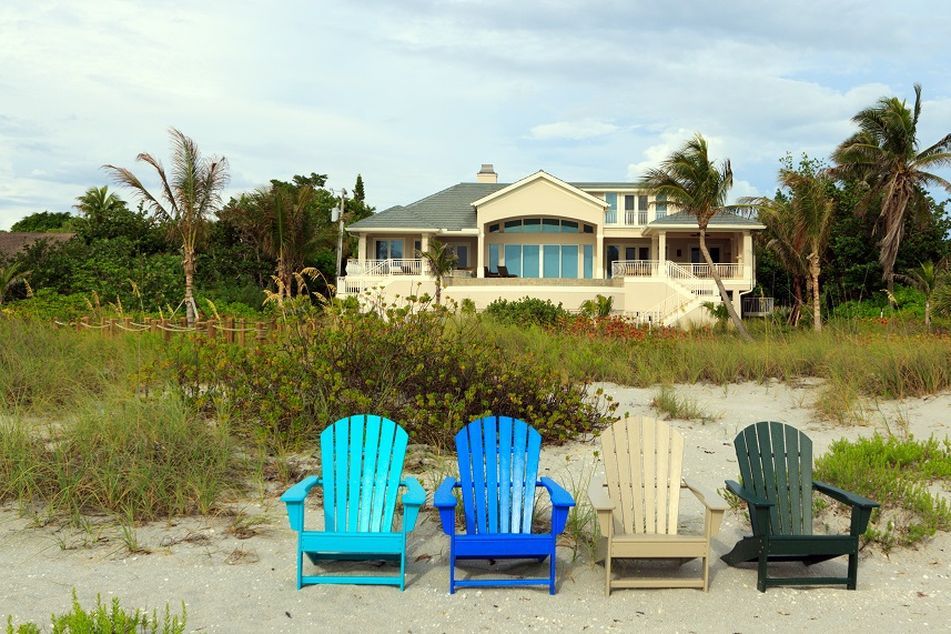Surprising trials of passing down vacation homes

Advisers can help clients work out sibling issues and transfer homes successfully
Vacation homes are more prevalent than ever but passing on these cherished properties to the next generation is turning out to be less than delightful in some cases.
Parents and their adult children can have different ideas about what’s to become of the family beach or mountain homes where they’ve celebrated many happy birthdays and holidays together over the years.
“There’s this aura around a vacation home because it’s where many good memories are made,” said Suzanne Shier, Northern Trust’s chief wealth planning and tax strategist. “Many parents are surprised and disappointed to learn that their kids don’t want anything to do with the home.”
Planning ahead and structuring the transfer in a way that anticipates several sticky situations, though, can keep a family’s treasured vacation home from erupting into a problem, experts said.
Families first need to talk about whether the next generation wants to keep the vacation property after the parents get older, making sure everyone recognizes the financial and other responsibilities that come with ownership, she said.
Children may not want the property now that they would be the ones to have to make sure the grass is mowed, utilities and taxes are paid and other necessities of maintaining the home and land. That’s especially the case if children have moved far away and know they won’t use it much.
(More: What really happens when wealth is transferred)
“Some clients have sold the vacation home outright and closed that chapter in a very orderly way, ensuring it doesn’t sit there going unused as the parents got older,” Ms. Shier said.
Even more likely than discovering kids have zero interest in the family vacation home, which would imply a sale was in order, parents tend to find the desire to use the vacation home and keep it in the family is not evenly embraced among their children.
For parents who decide the property will be passed on to their kids, the answers to some of the following questions can help determine which estate planning vehicle can best make it happen.
• Who will use the home, how often and will there be a use charge?
• Who will contribute to expenses and how will the property be managed?
• What happens if one of the inheritors decides they want out of it?
The simplest structure would be to have it passed down and jointly owned by the kids. However, as direct owners they would have to deal with the logistics of getting contributions from each party to cover property expenses and decisions would have to be agreed on by all owners.
“For many siblings, mutual decision making can be challenging,” said Tracy Craig, a partner and chair of the trust and estate department of Mirick O’Connell law firm.
Other options include transferring ownership into a limited liability company or a trust.
By creating an entity that owns the property and rules to dictate terms of use and ownership, trustees can be put in charge of the trust or managers in charge of the LLC, to handle details of funding, setting up a use schedule, renting the property or otherwise handling difficult situations that arise, Ms. Craig said.
For parents planning to hold on to the property until after they die, often times a trust works best, she said.
(More: How advisers can give clients a five-star experience)
Rules of the state where the property is located also can dictate different outcomes between using these two vehicles, Ms. Craig said.
For instance, in some states if the parents use an LLC to transfer ownership, when the property is shifted into it there is a transfer tax assessed, as opposed to using a revocable trust that would not create this expense, she said.
Sometimes parents decide to set aside funds to cover the property’s expenses for a few years after their death, and outline provisions for how rights are to be divided if one or all kids want to sell the property.
These decisions can be emotional and difficult and many families are making them for the first time as sales of vacation homes have exploded in the past decade.
Vacation home sales hit a record in 2014 with about 1.13 million properties, an amount that was an increase of 57% from 2013, according to the National Association of Realtors. Vacation home sales were down last year from that peak to about 920,000 houses sold, but they still accounted for almost one of every five real estate transactions.
(More: New estate rule would affect tax strategies of ultra-wealthy)
The market is being propelled by the baby boomer generation who are at or near retirement, the NAR said.
It makes sense that advisers and attorneys find they are helping more clients than ever pass on these vacation homes.
“The vast majority of clients are not 100% certain how the next generation feels about the vacation home,” Ms. Craig said. “If it’s not dealt with, a vacation home can disrupt sibling relationships and people can end up annoyed and resentful with each other, which is not what parents intended.”
Learn more about reprints and licensing for this article.








